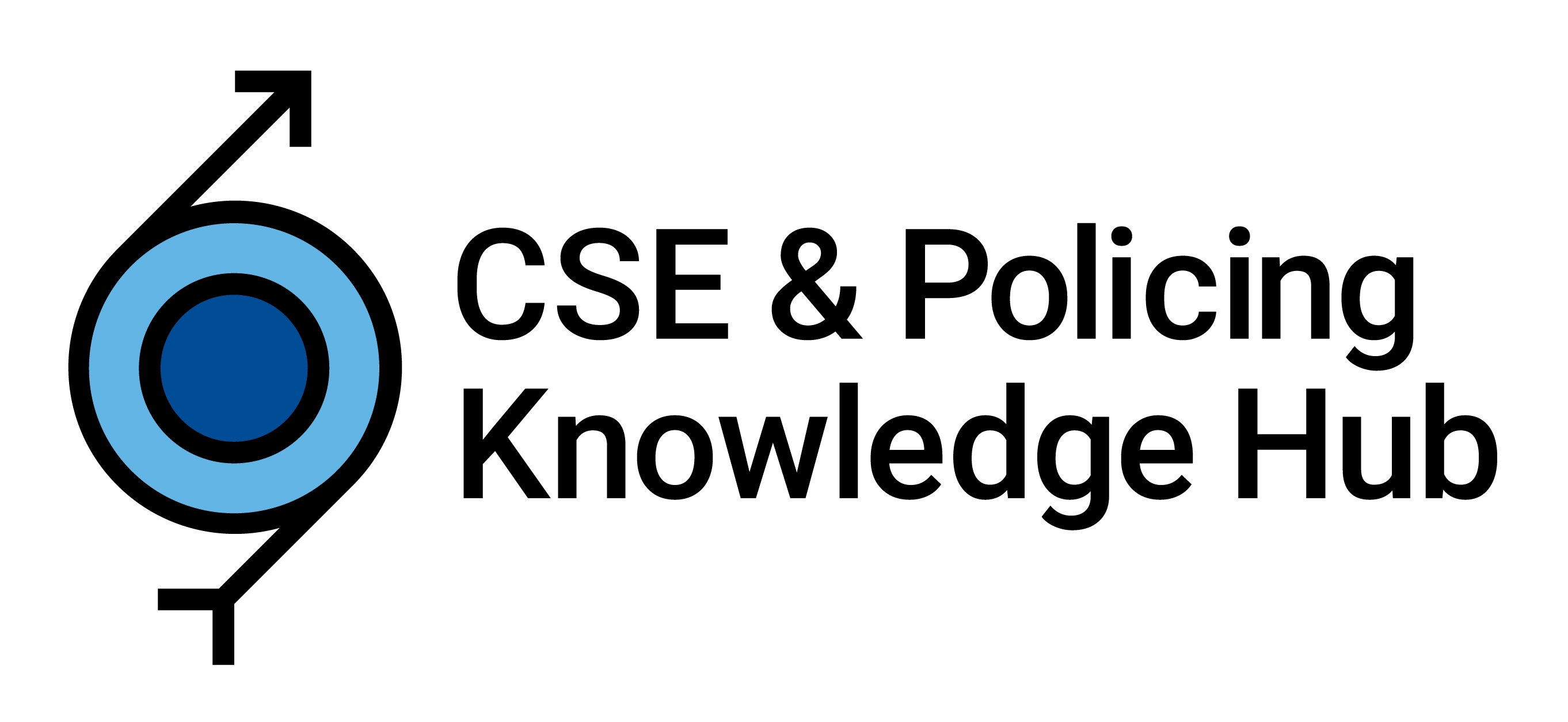Working together to enhance police responses to child sexual exploitation and related vulnerabilities
Research Reports
New Child Sexual Exploitation Definition & Guide
New CSE Definition and Guidance
The Department for Education (DfE) has published a new definition of child sexual exploitation and a guide for practitioners, local leaders and decision makers working to protect children from child sexual exploitation.
Child sexual exploitation Definition & Guide for Professionals: Extended text
The DfE document is adapted from an extended advice for practice document written by the University of Bedfordshire and Research in Practice, under commission from the Department for Education. The full text of our extended version, whose length allows for exploration of some of the more nuanced challenges of responding to CSE.
Some of the more complex issues explored within the University of Bedfordshire and Research in Practice extended document include:
• Interpreting the definition in practice (see pages 7-10 of our text)
• Moving beyond a focus on vulnerability to consider the inter-connected conditions for abuse (pages 11-13)
• The importance of context and the need to understand ‘constrained choice’ (pages 17-18)
• The challenges of current risk assessment processes (pages 26-27)
• Principles for working with children and young people affected by CSE (pages 30-34).
Learning from Reviews
Practice Briefing: Key Messages from Serious Case Reviews for the police and criminal justice agencies- 2016
Practice Briefing highlighting key messages from Serious Case Reviews published between 2011-2014 for the police and criminal justice agencies. The briefing is intended for use in:
> personal, team and service development
> to develop awareness of the issues and implications
for practice
> to generate discussion about ways in which the
learning can be applied to your agency.
This briefing is based on the findings of the Triennial Analysis of Serious Case Reviews 2011-2014. You can find the full report at: http://seriouscasereviews.rip.org.uk/resources/.
‘Online and on the edge: Real risks in a virtual world’- 2015
This inspection report details findings from an Inspection of how police forces deal with children who are being exploited via the internet.
PEEL: Police effectiveness (Vulnerability) An inspection of Norfolk Constabulary- 2015
HMIC’s vulnerability inspection examined the overall question, ‘How effective are forces at protecting from harm those who are vulnerable, and supporting victims?’. The report considers how forces respond to and support missing and absent children and victims of domestic abuse, and assess how well prepared forces are to respond to and safeguard children at risk of sexual exploitation.
In harm's way: The role of the police in keeping children safe- 2015
Between January 2014 and June 2015, Her Majesty’s Inspectorate of Constabulary (HMIC) conducted inspections of different aspects of the police response to child protection issues. This report summarises findings from all these inspections.
Young People's Voices: Police Engagement with Adolescents
'They Don't Talk About it Enough' Report on the 2014 Consultation with Youth Advisors for 'Our Voices'- 2015
In the summer of 2014 as part of the ‘Our Voices’ project the team form the International Centre, alongside the project partners from Albania and Bulgaria organised consultation events with youth advisors. In particular they set out to discover young people’s views about the issues of sexual violence in their communities, the barriers to young people talking about these matters and accessing support, what young people think can be done to stop sexual violence, and how they can be involved in preventing it. The publication reflects the views of 47 young people between the ages of 11-25.
Children's Voices: Children and young people’s perspectives on the police’s role in safeguarding: a report for Her Majesty’s Inspectorate of Constabularies- 2016
Conducted over a three month period in 2015, this research report represents the views of 45 children and young people aged between 7-19 who gave their views via interview or surveys to describe how they experience police responses to concerns about their safety or wellbeing. The focus on ‘police responses’ was taken to include both officers and civilian staff, at any point of their engagement with the child or young person.
Making Justice Work: Experiences of criminal justice for children and young people affected by sexual exploitation as victims and witnesses- 2015
This research report explored the experiences of criminal justice for children and young people
affected by sexual exploitation as victims and witnesses and the ways in which these could be improved. The work consisted of: a policy and literature review; in-depth participatory research with nine young ‘experts by experience’; interviews with two peer supporters; and interviews and focus groups with 38 professionals. Six priority areas for change are identified that reflect the priorities of the ‘experts by experience’, and are supported by professional contributions to the research.
"It's wrong... but you get used to it" A Qualitative Study of Gang-Associated Sexual Violence Towards, and Exploitation of, Young People in England- 2013
This research report identifies the findings of a two year study (2011-13) into gang-associated sexual violence and exploitation, commissioned by the Office of the Children's Commissioner for England as part of their Inquiry into Child Sexual Exploitation in Gangs and Groups. The research aimed to consider: the scale and nature of gang-associated sexual violence and exploitation in six areas of England; the main pathways into gang-related sexual violence and exploitation for young people living in these neighbourhoods; and potential models for an effective multi-agency response to the issue. Following an initial literature and policy review, individual interviews and focus groups were conducted with 188 young people, and focus groups with 76 professionals, from across the six research sites
Multiagency Working and Information Sharing
CSEFA Hub and Spoke Evaluation Report-2016
This evaluation explores the potential of the ‘Hub and Spoke’ model of service development to trigger cultural and systemic change in the way that services supporting children and young people respond to child sexual exploitation. Specifically it considers the impact of the Hub and Spoke model on:
a) Safeguarding young people from sexual exploitation through service delivery
b) Supporting and equipping specialist CSE workers to work effectively in host agencies
c) Promoting stable CSE policy frameworks in new areas by raising awareness, developing procedures and advancing cultures of support from local policy makers responsible for CSE.
Tackling Child Sexual Exploitation: A Study of Current Practice in London- 2014
Commissioned by London Councils and the London Safeguarding Children Board and conducted in late 2013, this report presents the findings of a short-term scoping study into current responses to CSE across London. The findings are drawn from an in-depth quantitative survey (completed by 30 London boroughs and local safeguarding children boards) and eight semi- structured interviews with statutory and voluntary sector providers.
Evaluation of Safe Choices/PSNI: Co-Located Pilot Initiative-2016
This report presents the findings of an evaluation of a pilot initiative in which a specialist missing/child sexual exploitation senior practitioner was co-located with a police Missing and Vulnerable Persons Officer in a Public Protection Unit in a Belfast police station.
Mitigating Harm: Considering Harm Reduction Principles in Work with Sexually Exploited Young People- 2015
This paper is produced by two of the CSE and Policing Knowledge Hub Regional Academics; Kristie Hickle (South) and Sophie Hallett (Wales). The paper explores principles of harm reduction in work with young people experiencing (or at risk of) CSE. These principles translate across disciplines and are helpful in considering the ways in which a public health approach can be translated to practice on the ground.
Leadership, management and governance
A Briefing for Inspectorates
This briefing has been designed to inform the development of the Joint Targeted area inspections by Ofsted, HMIC, HMIP and the CQC.
Investigation
Making Justice Work: Experiences of criminal justice for children and young people affected by sexual exploitation as victims and witnesses- 2015
This research report explored the experiences of criminal justice for children and young people
affected by sexual exploitation as victims and witnesses and the ways in which these could be improved. The work consisted of: a policy and literature review; in-depth participatory research with nine young ‘experts by experience’; interviews with two peer supporters; and interviews and focus groups with 38 professionals. Six priority areas for change are identified that reflect the priorities of the ‘experts by experience’, and are supported by professional contributions to the research.
Prevalence and Identification
Suffering in Silence: Children and Unreported Crime- 2014
This inquiry was undertaken in partnership with Victim Support and presents the findings of a Scoping Inquiry into the hidden victimisation of children and young people, undertaken on behalf of the All Party Parliamentary Group (APPG) for Victims and Witnesses of Crime. Evidence was gathered in four ways:
1. a short review of existing literature;
2. an analysis of relevant data sources including the Crime Survey for England and Wales;
3. a rapid call for evidence from charities, service providers, statutory bodies and campaigners; and
4. three focus groups with children and young people.
Awareness Raising
Families and Communities Against Child Sexual Exploitation-2015
This evaluation examines the work conducted by Barnardo’s on three pilot sites between April 2013- March 2015. The elements within the FCASE model include: a structured programme of six to eight weeks direct work with young people and families where a risk of child sexual exploitation (CSE) has been identified; delivery of CSE training with professionals; and undertaking community awareness raising. The report identifies the elements that work well and some of the challenges in its implementation.










